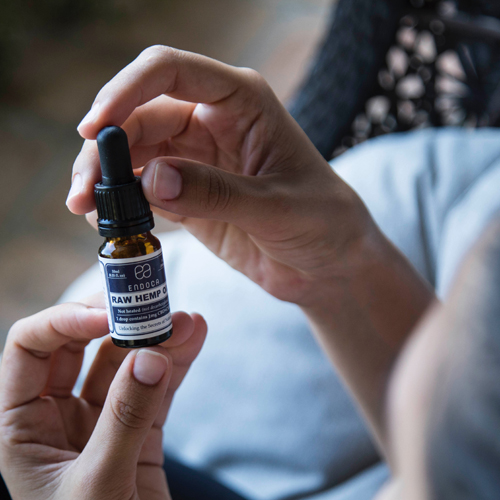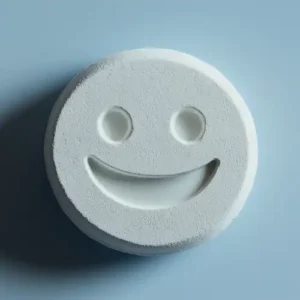Clinicians and Patients in the UK Urgently Require Better Education About Cannabis-Derived Products
In November 2018, all specialist doctors in the UK who were listed on the Specialist Register of the GMC (General Medical Council) were given permission to prescribe cannabis-derived medicines. Unfortunately, a lack of research into these so-called medicines and their subsequent effects has resulted in patients purchasing unlicensed products, with some containing dangerous levels of some key ingredients. A number of these products contain up to 400 times more than the legal limit!
The University of Bath and University College London recently published a review by clinicians and leading scientists detailing the range of cannabis-derived products that are currently available, highlighting the urgent need for better education for both clinicians and patients regarding the medicinal make-up of cannabis-derived medicines, including their potential effects on the human body.
Cannabinoid and cannabis-based medicinal products have created a quickly-evolving and very complex field, in-as-much-as these products vary in their CBD and THC content. Part of the complexity of this subject is which health conditions these “medicines” can be used to treat, and who is legally allowed to prescribe them.
Most of us have heard or read claims that cannabis-based medicines work wonders for managing conditions such as epilepsy, multiple sclerosis, chronic pain, including the sometimes-devastating side-effects of chemotherapy; however, the authors of this review are concerned about the complete lack of quality standards. It is their suggestion that cannabis-based products sold both online and in health food stores should not be used for medicinal purposes.
What’s the Difference Between CBD (Cannabidiol) and THC (Tetrahydrocannabinol)?
CBD and THC are known as cannabinoids. More than 100 cannabinoids have been identified in the marijuana plant, with two molecules known as cannabidiol (CBD) and tetrahydrocannabinol (THC) being the most extensively researched. It’s now known that cannabinoids and other parts of the cannabis plant are capable of affecting a number of physiological systems in the human brain and body.
THC is the cannabis chemical that gives users a psychoactive effect, commonly known as being stoned or getting high. (It’s now believed that THC can assist patients by reducing pain and shrinking tumours, in addition to other benefits).
CBD, on the other hand, is not intoxicating. Of all the cannabinoids, CBD has been researched and studied the most extensively. CBD is perhaps the most exciting cannabinoid because of the sheer number of medical benefits experienced by users of this oil — and the list is still growing!
When used independently, CBD and THC produce different clinical benefits. For example, when used on its own, THC is an effective treatment against vomiting and nausea caused by chemotherapy; while CBD used independently can provide effective relief against treatment-resistant epilepsy. This means that when THC and CBD are used in conjunction, the therapeutic benefits are probably due to their opposing mechanisms of action.
Purchasing CBD Products Online
Legally in the EU, all CBD products purchased via the Internet and in health food stores have a legally restricted THC content of up to 0.2%. The reality is, though, that the amount of THC declared in these products which are sold as herbal remedies (not regulated medicinal products) varies widely. The result is that the CBD content can be lower than used in clinical trials, and that other products will exceed the legal limit as set by the EU.
Be Very Wary of Cannabis Oils Purchased Online!
We are issuing this warning about purchasing cannabis oils online because many online purchases of cannabis oil were found to contain THC, which is the psychoactive ingredient.
Recently, a reporter from the Daily Mail went undercover, posing as a father on Facebook groups. These groups discuss how and why they use cannabis oils to treat a range of conditions their children are experiencing. What he noticed was that there were links to a number of dealers within these discussions, posting their advertisements for high-quality, full-spectrum THC oil. This reporter was able to purchase cannabis oils which had excessive THC levels; in fact, they were proven by laboratory tests to have THC levels in excess of 80%! Worse still, these sellers were making unsubstantiated statements about the conditions their specific cannabis oils were successful in treating.
These are dangerous claims because parents who would do anything to alleviate their children’s suffering are very vulnerable. Not only are they at risk of being exploited, their children are also at risk of experiencing serious, perhaps life-threatening complications caused solely by these unregulated products.
This same reporter was offered edible ‘sweets’ for £25 and a ’60ml course’ of cannabis oil for £1500. All too often, these packages containing cannabis products are posted to buyers disguised as gifts. In London, The TicTac Drug Identification laboratory was concerned to discover that one sample had a low level of CBD, yet it contained 86% THC!
For people that work in jobs where drug testing is regularly carried out, using a cannabis oil that has high levels of THC may cause them to fail a drugs test at work. Read more: Can Using Cannabis Oil Result in a Positive Drug Test?
The Rise of Synthetic Cannabinoids
A concerning trend in the cannabis market is the emergence of synthetic cannabinoids, often marketed as “legal highs” or “designer drugs.” These lab-created compounds mimic the effects of natural cannabis but can be far more potent and unpredictable.
Synthetic cannabinoids like K2 or Spice are often sprayed onto dried plant material and sold as “herbal incense.” Users smoke these products, seeking effects similar to marijuana. However, the health risks are significant:
- Unpredictable potency leading to overdose
- Severe anxiety and paranoia
- Rapid heart rate and high blood pressure
- Seizures and kidney damage
- Addiction potential
Law enforcement and health officials struggle to keep up with new synthetic formulations. As one compound is banned, chemists tweak the molecular structure to create new “legal” versions.
Consumers should be wary of any cannabis product that doesn’t clearly state its ingredients or origin. Stick to regulated, tested products from reputable sources to avoid the dangers of synthetic cannabinoids.
Best Cannabis Drug Tests
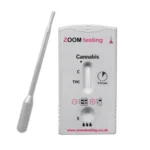
Cannabis Drug Test (THC)
£2.49 – £28.99
Select options
This product has multiple variants. The options may be chosen on the product page
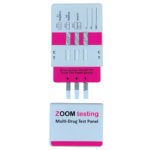
3 Panel Drug Test for Cannabis, Cocaine & Speed
£4.99
Add to cart
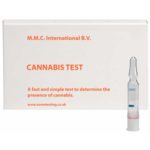
Cannabis Drug Identification Test
Original price was: £29.99.£24.99Current price is: £24.99.
Add to cart
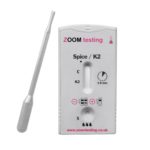
Spice Drug Test
£2.95 – £49.90
Select options
This product has multiple variants. The options may be chosen on the product page
Photo by Demi Pradolin on Unsplash
This post was originally published in 2019. It was last updated in August 2024.
Zoom Testing is a leading UK drug testing company and a supplier of Drug Test Kits.

